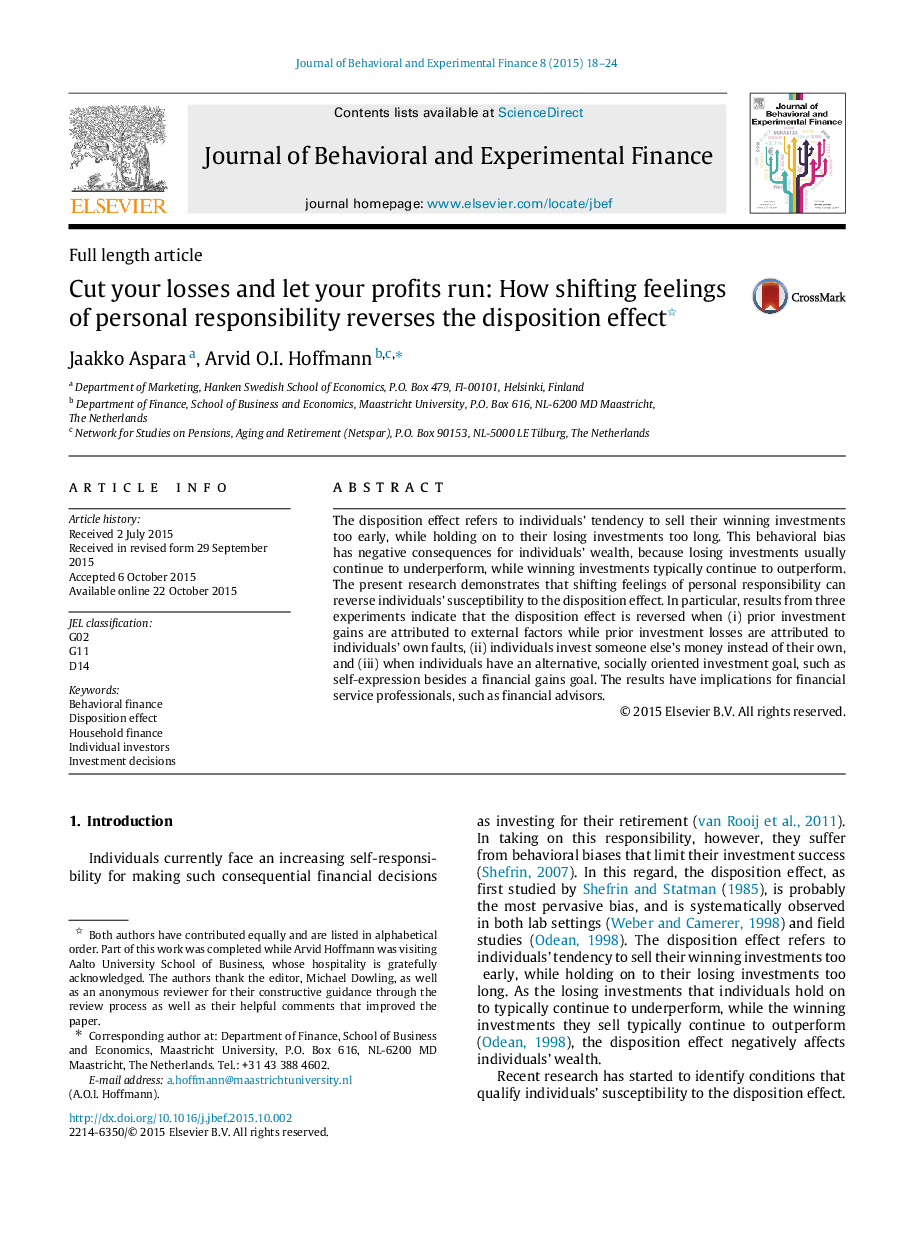| Article ID | Journal | Published Year | Pages | File Type |
|---|---|---|---|---|
| 931694 | Journal of Behavioral and Experimental Finance | 2015 | 7 Pages |
The disposition effect refers to individuals’ tendency to sell their winning investments too early, while holding on to their losing investments too long. This behavioral bias has negative consequences for individuals’ wealth, because losing investments usually continue to underperform, while winning investments typically continue to outperform. The present research demonstrates that shifting feelings of personal responsibility can reverse individuals’ susceptibility to the disposition effect. In particular, results from three experiments indicate that the disposition effect is reversed when (i) prior investment gains are attributed to external factors while prior investment losses are attributed to individuals’ own faults, (ii) individuals invest someone else’s money instead of their own, and (iii) when individuals have an alternative, socially oriented investment goal, such as self-expression besides a financial gains goal. The results have implications for financial service professionals, such as financial advisors.
